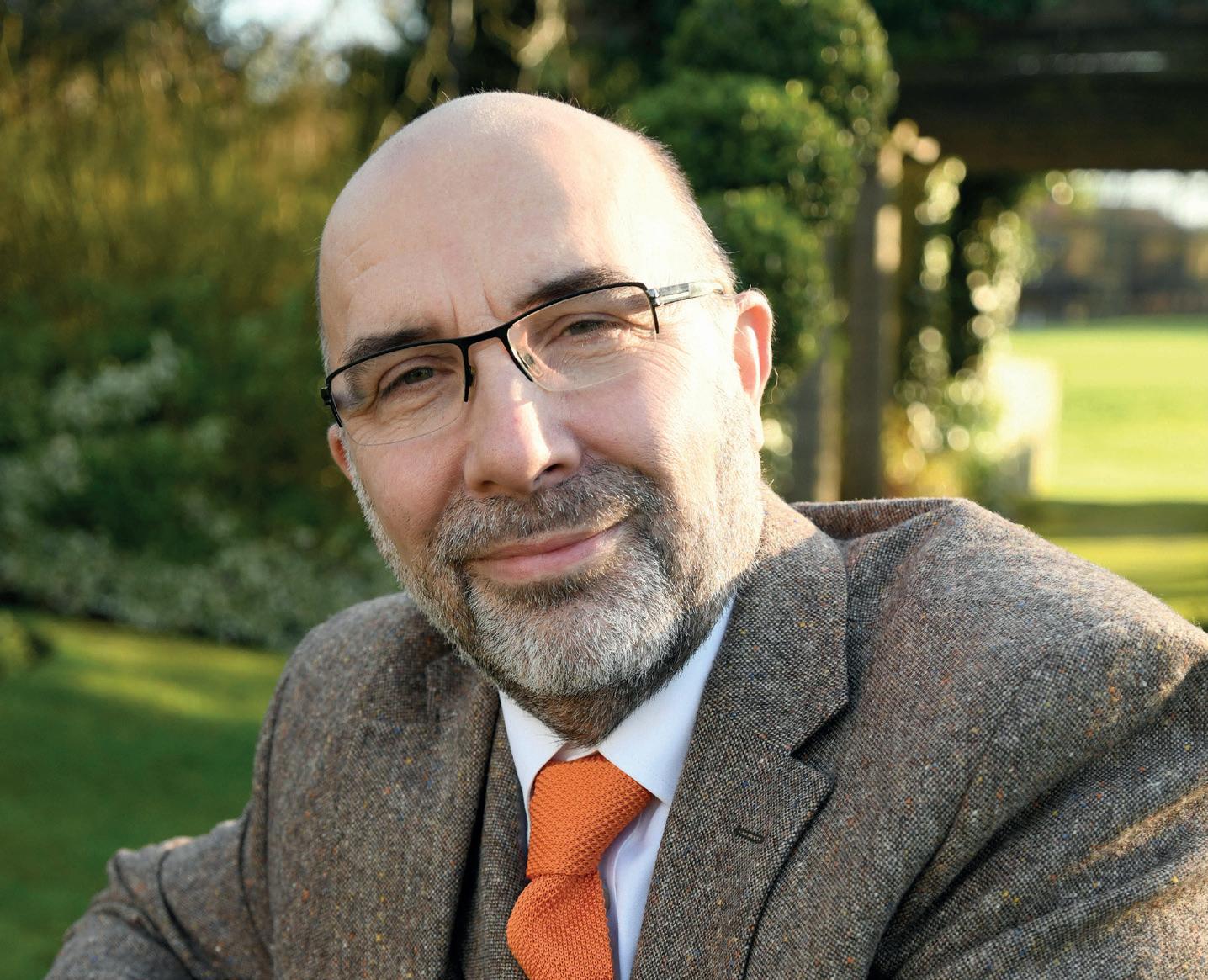
3 minute read
THE TIME FOR ECO-READERS?
THE T I ME F OR E CO - LEAD E R S ?
By David Cliff, Gedanken
Advertisement
David Cliff is Managing Director of Gedanken. But behind the title is a man who thrives on using his decades of experience, including senior manager posts across the public and private sectors, to help to make a difference to the lives and careers of others. Here he delves deeper into the emergence of ‘eco-leaders’ .
Leadership has multiple definitions and viewpoints. The term ‘eco-leadership’ was coined in the late 90’s/early 2000’s as an attempt to encapsulate leadership challenges that are crucial to a postmodern world with ecological challenges. Recent times have made this approach much more centre stage as we have entered the ‘Anthropocene’ era where our species impact massively on the whole ecosystem.
‘Eco’ refers of course to ecology. This means how interdependent systems maintain homeostasis that allow growth, evolution and balance. This definition is sufficiently generalised to include not only how organisations trade across the planet, but also the sub-systems that are incorporated within their operation.
Adopting this leadership approach poses key questions that leaders need to ask themselves about their leadership and organisational functions - here are just some of them:
1.ECOLOGY OF SELF
How do we affect our own work life balance? How do we balance the need to self-actualise against our relationships with others? Increasingly, how do we square our own ambitions against societal and planetary needs?
2.ECOLOGY OF OTHER
How do we provide sustainable, engaged workplaces for people that are nonexploitative and support mental health, creativity and productivity? How do we balance the needs of shareholders, funders and our own needs against workforces that are collectives? The growth of CIC’s and other organisational structures reflect increasingly the tendency of some entrepreneurs to see workplaces as a collective rather than an owned entity. 3.ECOLOGY OF INTERNAL SYSTEMS
How do our teams interrelate? Is there effective communication and accuracy between message sent and received within the organisation? Do we understand the relationship between different parts of large systems? Do we for example have a sales-led operation which in addressing the bottom line, causes internal disharmonies, stress and disempowerment?
4.TEMPORAL ECOLOGY
Do we understand the long-term implications of what we are doing now? Have we an exit plan? Have we adopted a future view to look at the unintended consequences of our actions? How do we define success now and how will it be viewed in 30 years’ time? For example, taking 20% of plastic out of your packaging is no good if it’s still floating on the oceans in a century’s time, it appears virtuous now but may be ultimately tokenism. Have we adequate workforce planning in high skilled arenas where there is a long lead time to develop high calibre staff? Look no further than the NHS for examples of the latter. 5.SOCIAL ECOLOGY
How do we maintain corporate social responsibility and understand our organisation as part of the world? Within communities, how do we avoid exploiting workforces or exposing them to unnecessary hazards, pollutants or aggressively destroying competition that provides economic stimulus within those communities that have other social value? How do we balance the profit imperative and board ambitions against the organisation’s contribution to society?
6.METAPHYSICAL ECOLOGY
Renowned management theorist Vic Lessem conceived of the notion of the “metaphysical leader” as the most evolved leadership form. Such leaders see their businesses as part of the world and function as integral parts thereof. Such organisations hold evolved humanistic interests and legacy at the heart of their CSR and culture. What their organisation provides often has deeply considered social value and they explore the moral philosophy behind their actions. They will ask questions as to what their own contribution and that of their organisation has to the environment, to habitats, to wellbeing in the workforce, to the growth of communities and the promotion of human rights. They see their organisation as less moulded around profit and growth as much as around purpose and contribution. Values are more than rhetoric or the subject of a development workshop but are almost a form of ‘Zen’ driving their daily practice.
Certainly, whether one adopts the notions of Eco-leadership or not, organisations no longer need to be just ‘lean’, but ‘green’ and the agenda just c annot be ignored. The term ‘green’ however is ‘semantically packed’ and some of the above questions perhaps begin the unpacking process to allow business leaders to consider the evolved steps they need to take to lead, trade and prosper in the times of change ahead.










